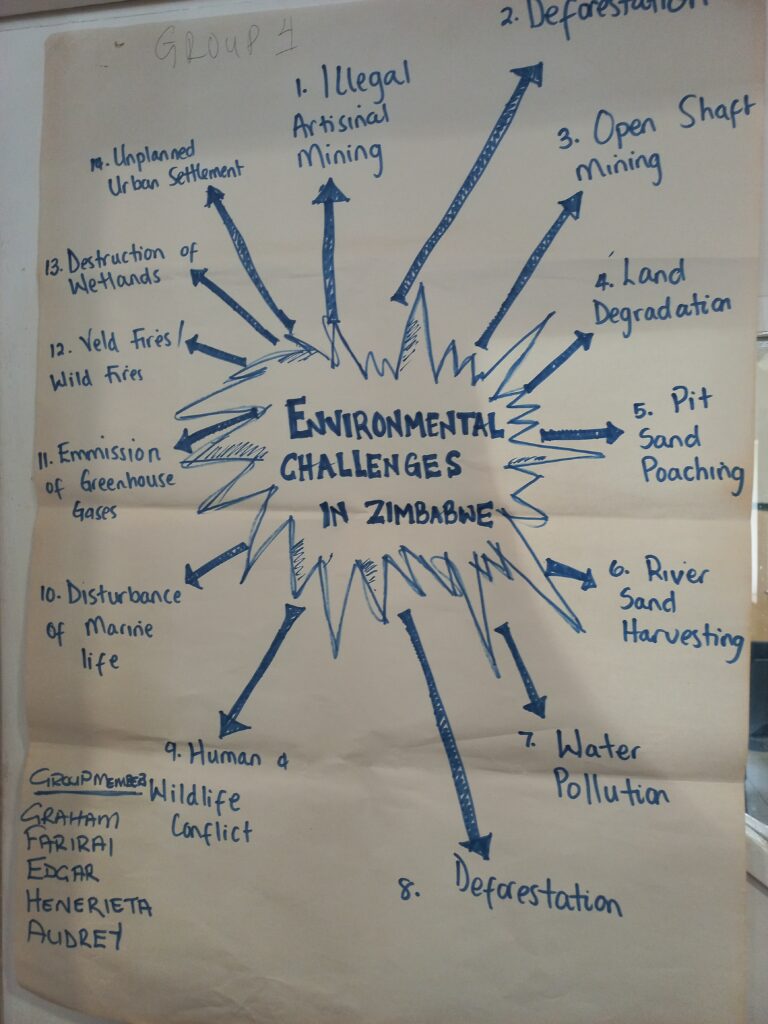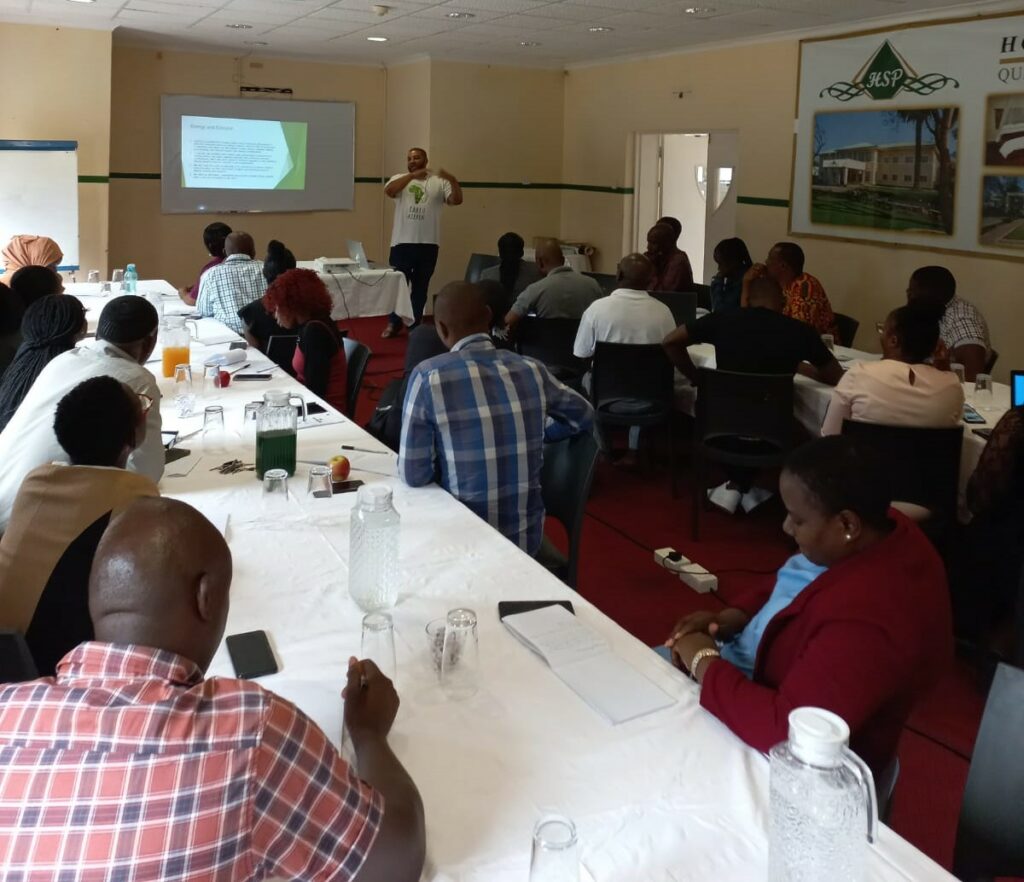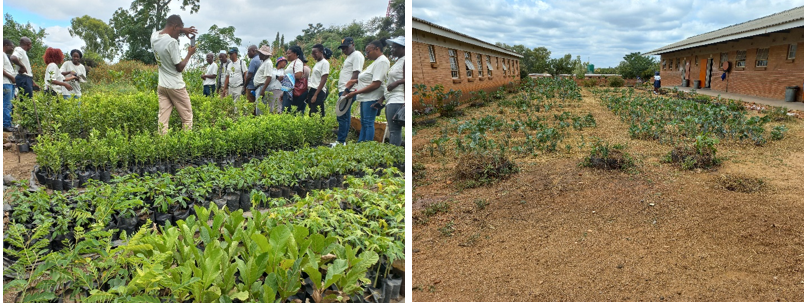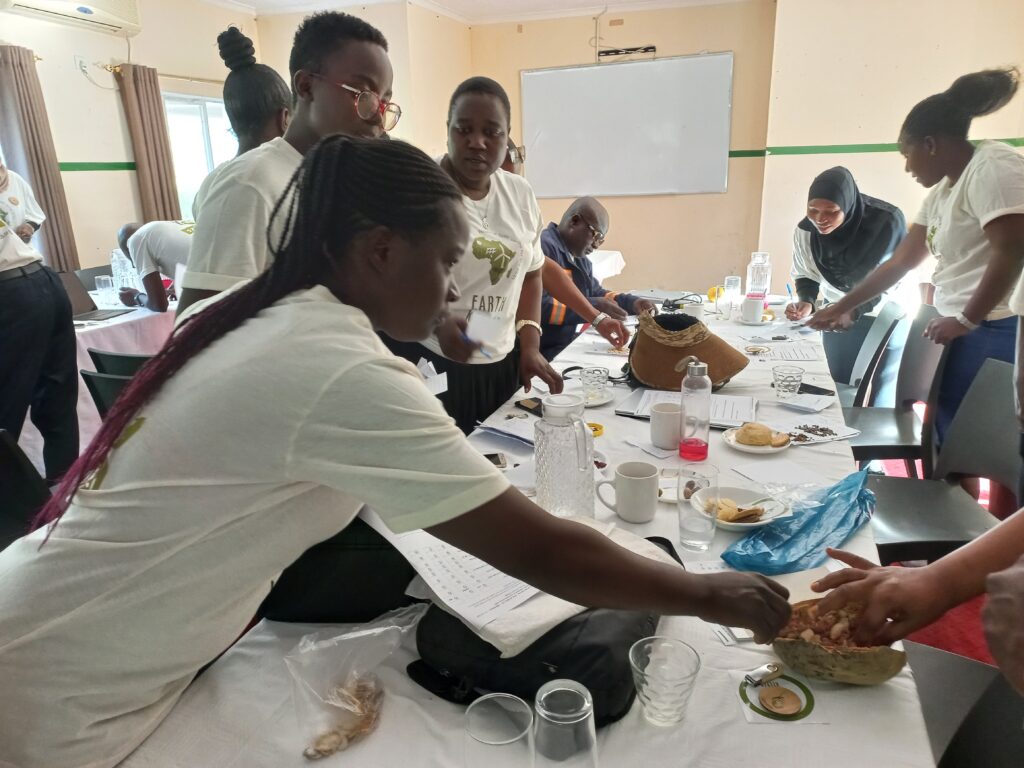FLEAT Zimbabwe II (Bulawayo)
- Published:
SAFCEI hosted the first Faith Leader Environmental Advocacy Training (FLEAT) workshop for 2023 in Zimbabwe, Bulawayo, from 21 to 23 March 2023. The FLEAT Zimbabwe II group is the second group trained, following the first group in 2018, who has subsequently registered themselves as FLEAT Zimbabwe. The group of sixteen women and fourteen men who represented the Muslim, Quaker, and various Christian denominations with diverse backgrounds came together as people of faith to share their experiences and concerns on environmental issues.
 Faith leaders highlighted some of the environmental challenges they have in Zimbabwe.
Faith leaders highlighted some of the environmental challenges they have in Zimbabwe.
The two themes for the training were Energy and Climate Change. SAFCEI’s Energy and Climate Justice Manager, Wayne Du Plessis, gave a presentation and explained the difference between the JET (Just Energy Transition), which is a call from civil society for an affordable, sustainable, and climate-resilient energy system that is just and accessible to all and JETP (Just Energy Transition Partnership) and the aims of the partnership, which are to help a selection of heavily coal-dependent emerging economies make a just energy transition. Wayne spoke about SAFCEI’s work around the anti-nuclear campaign as a way to call for the government to act on the energy crisis and create an effective and affordable energy plan for all who live in South Africa.
 Wayne giving a presentation on Energy.
Wayne giving a presentation on Energy.
We also had a session with our Food and Climate Justice Manager, Gabriel Manyangadze, about Agroecology and the food systems in Southern Africa, particularly in Zimbabwe. The group reflected on different t indigenous foods they used to love as children and the impact of processed foods in communities.
On the third day of the workshop, the group visited two schools; Mgombane Primary and Mabhukudwana Primary School, looking at their Permaculture/ Integrated Land-use Design (ILUD) programme, which is a process based on careful planning of land usage to achieve the desired ecological, social and economic outcomes. The Facilitator and FLEAT Zimbabwe 2 participant, Dingaan Ndlovu, took us on a tour with a difference. Young students from Mabhukudwana Primary School were tasked to introduce each plant and their benefits to the environment.
 Field visit to local schools.
Field visit to local schools.
According to Mabhukudwana Primary School Permaculture / ILUD program report, “ the school is now able to harvest vegetables from the food forest and feed children, and this has created more enthusiasm towards growing our own food. In the process, pieces of land that were subjected to erosion have been restored, and fertility and structure have improved for increased carbon sequestration. Our learners now understand that growing crops must be based on responsible land management principles”.
We also had a seed swap session to encourage practices of sharing seed varieties as a way to combat food insecurity in Africa.
 Faith leaders sharing organic seeds.
Faith leaders sharing organic seeds.
The week ended with a planning session on activities the faith leaders commit themselves to in the next six months. We look forward to seeing what they have achieved in our next meeting in September 2023!
By Zainab Adams.
Who we are

SAFCEI (Southern African Faith Communities’ Environment Institute) is a multi-faith organisation committed to supporting faith leaders and their communities in Southern Africa to increase awareness, understanding and action on eco-justice, sustainable living and climate change.
Featured Articles
-

South Africa: Who Ends Up Paying If DMRE Cooks the Price of Nuclear Power?
-

South Africa’s nuclear energy expansion plans continue to draw criticism, environmental NGOs chew over legal challenge
-

Earthlife Africa and SAFCEI respond to latest unsettling nuclear news regarding the ministerial determination
-

Open Wing Alliance Africa (Virtual) Summit 2023
-

The Green Connection and SAFCEI respond to energy minister's divisive and deflecting comments
-

Job Vacancy: FLEAT Coordinator







